Business
To tackle inflation, Buhari insists no forex for food import
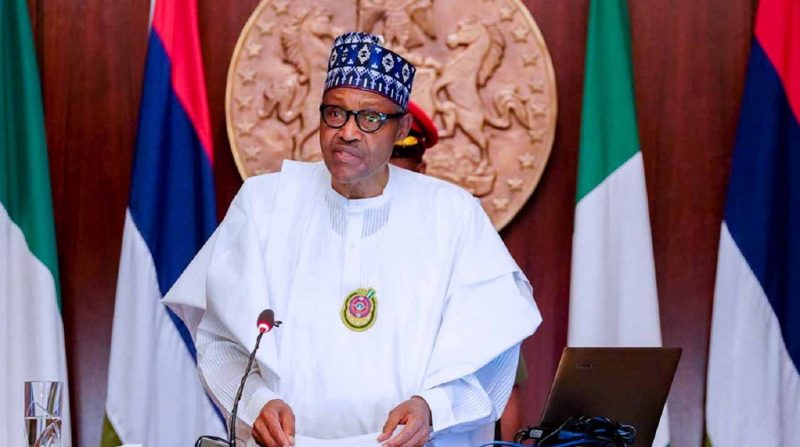
President Muhammadu Buhari has again directed the Central Bank of Nigeria (CBN) not to grant foreign exchange for food importation.
He said this was one of the strategies by his administration to stem the rising cost of foodstuffs in the country as from early next year, adding that diversification from oil to agriculture had saved Nigeria from the harsh economic realities of COVID-19.
He spoke on Tuesday during his fifth meeting with the Presidential Economic Advisory Council at the State House, Abuja.
Buhari, according to a statement by his Senior Special Assistant on Media and Publicity, Mallam Garba Shehu, said since seven states produce enough rice that the nation would need, it made no sense to import the food item.
“The CBN must not give money to import food. Already, about seven states are producing all the rice we need. We must eat what we produce,” he stated.
The President had in September explained that Nigeria which hitherto had only three fertilizer blending plants now has 33.
He said, “Going back to the land is the way out. We depended on petrol at the expense of agriculture. Now, the oil industry is in turmoil. We are being squeezed to produce at 1.5 million barrels a day as against a capacity to produce 2.3 million. At the same time, the technical cost of our production per barrel is high, compared to the Middle East production cost.”
The President emphasised the place of agriculture in the efforts to restore the economy but agreed that measures must be put in place to curtail inflation in the country:
He said, “We will continue to encourage our people to go back to the land. Our elite is indoctrinated in the idea that we are rich in oil, leaving the land for the city for oil riches. We are back to the land now.
“We must not lose the opportunity to make life easier for our people. Imagine what would have happened if we didn’t encourage agriculture and close the borders. We would have been in trouble.”
The meeting, which was for a review of and reflections on the global and domestic economy in the outgoing year was attended by Vice-President Yemi Osinbajo, as well as Ministers of Finance, Zainab Ahmed and her Humanitarian Affairs counterpart Sadiya Farouk.
The meeting noted the sharp deterioration in international economic environment and its impact on Nigeria’s continuing but fragile economic recovery; that Nigeria’s economic growth continues to be constrained by obvious challenges, including infrastructural deficiencies and limited resources for government financing.
It also noted the need to make the private sector of the economy the primary source of investment, rather than government.
It reviewed progress towards structural reforms in response to the economic crises, including the institution of the Economic Sustainability Plan, the changes in electricity tariffs and fuel pricing regime, the partial re-opening of the nation’s land borders, the movement towards unification of exchange rates and budgetary reforms through Finance Bill 2020 and 2021.
It also agreed that to prepare the country for the challenges ahead, it is imperative to ensure macro-economic stability, create certainty and re-build investor confidence in the economy.
The meeting stressed the need to deepen structural reforms initiated by the Buhari administration as a basis for stimulating investments from domestic and international sources with a view to raising productivity in key sectors of the economy.
Railway
NRC, Plateau sign MoU to revive Jos–Kuru train
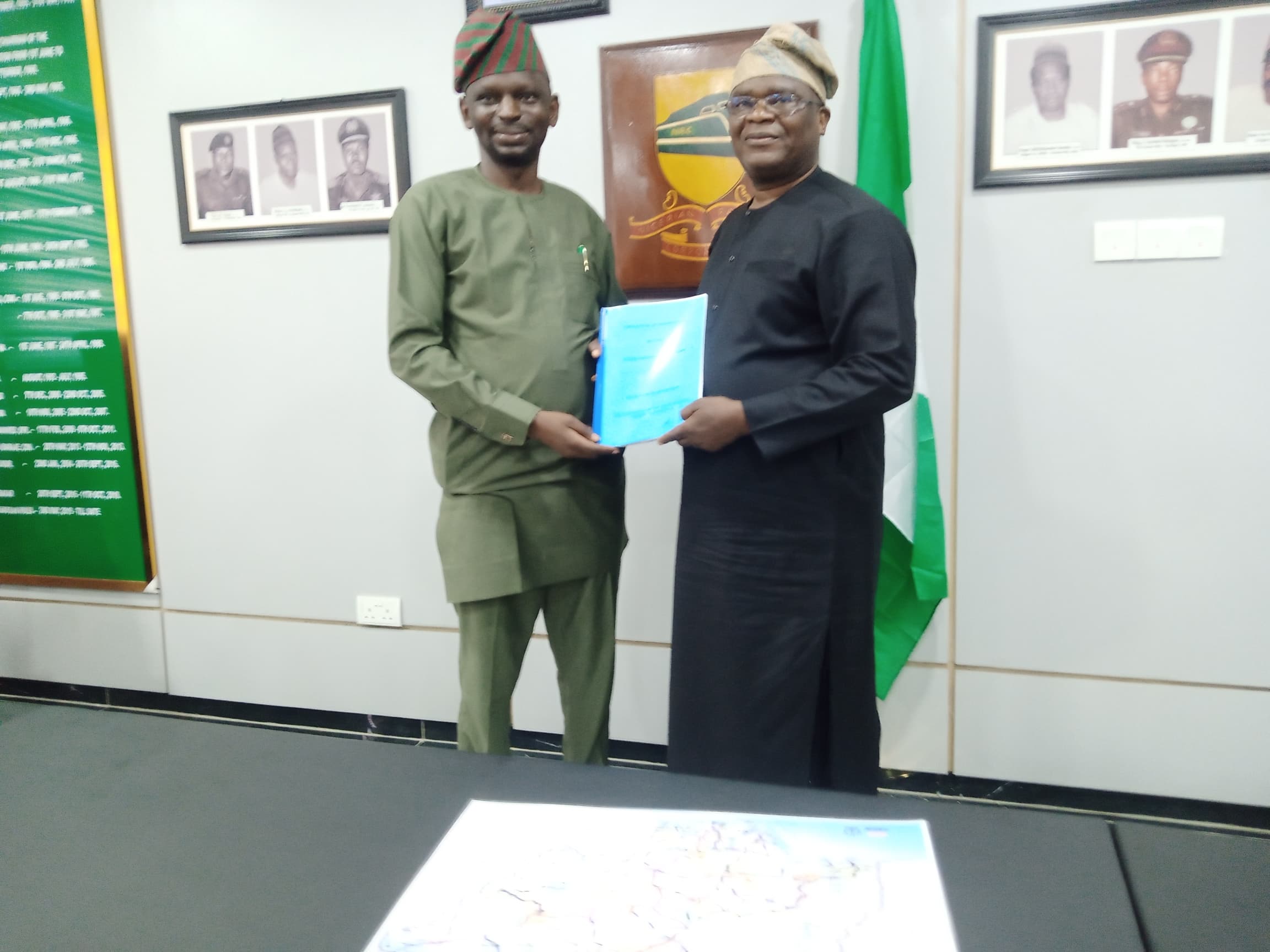
NRC, Plateau sign MoU to revive Jos–Kuru train
The Nigerian Railway Corporation (NRC) and Plateau State Government have signed a Memorandum of Understanding (MoU) to restore and operate the historic Jos–Kuru rail corridor.
The agreement was signed at the NRC Lagos headquarters on Monday by the Commissioner for Transportation in Plateau State, Mr Jatau Davou, and the NRC Managing Director, Dr Kayode Opeifa.
This is contained in a statement by the NRC Media Team, adding that it marks a significant milestone in efforts to boost economic activity, reduce transportation costs, and improve mobility in Plateau State and beyond.
Davou, who represented the Plateau State Governor Caleb Manasseh Mutfwang, expressed profound gratitude to the Minister of Transportation, Hon. Said Ahmed Alkali, and the new NRC Managing Director, Dr Opeifa, for their unwavering support despite numerous challenges.
He said, “This is not just about rail transportation; it is about restoring hope and economic prosperity to our people. “We appreciate the United Nations for debunking negative narratives about our dear state and reaffirming our commitment to national development.”
Jos–Kuru line, according to the statement, a segment of the historic Kafanchan–Kuru route, will serve as a vital link between the Western and Eastern rail corridors.
It will connect local communities, support farmers and traders with efficient cargo movement, and ultimately drive down the cost and duration of travel within the state.
“While the service will initially operate on the existing narrow gauge, plans are underway to expand to modern standard gauge networks as part of a broader national railway modernisation programme,” it stated.
In his remarks, Opeifa emphasized the importance of federal-state cooperation in infrastructure development, lauding the Plateau State government’s proactive role in restoring the once-abandoned rail tracks.
“This partnership demonstrates how government at all levels can collaborate beyond politics, to deliver tangible benefits to Nigerians.
We’re not just bringing trains; we’re bringing back dignity, economic empowerment, and national integration,” Opeifa added.
He also clarified that recent reports of railway assets being stolen were misinformed.
“Those coaches were not stolen. They were redeployed to Plateau where they are now being rehabilitated and put to productive use.”
With the NRC committing to station a dedicated business manager in Plateau to oversee operations, the project is expected to generate jobs, stimulate local businesses, and offer new advertising and entertainment opportunities through train services, the statement added.
He disclosed that the Minister of Transportation, Alkali, threw his full weight behind this project, reaffirming President Bola Ahmed Tinubu’s Renewed Hope Agenda and pledging the full support of the Federal Government in ensuring that it delivered full dividends of rail services to the average Nigerians who badly needed these services.
Opeifa said, “We will continue to (provide functional) rail across Nigeria — from Jos to Borno, from Aba to Port Harcourt, and everywhere in between. This is a new dawn for Nigerian rail.”
He said he looked forward to the commencement of commercial operation on the corridor anytime soon, in order to assure the people of the Plateau of the commitment of the FG under the Tinubu administration to take rail transportation all parts of Nigeria.
Auto
Parents hail Toyota (Nigeria) Limited at 18th Toyota Dream Car Art Contest Award ceremony
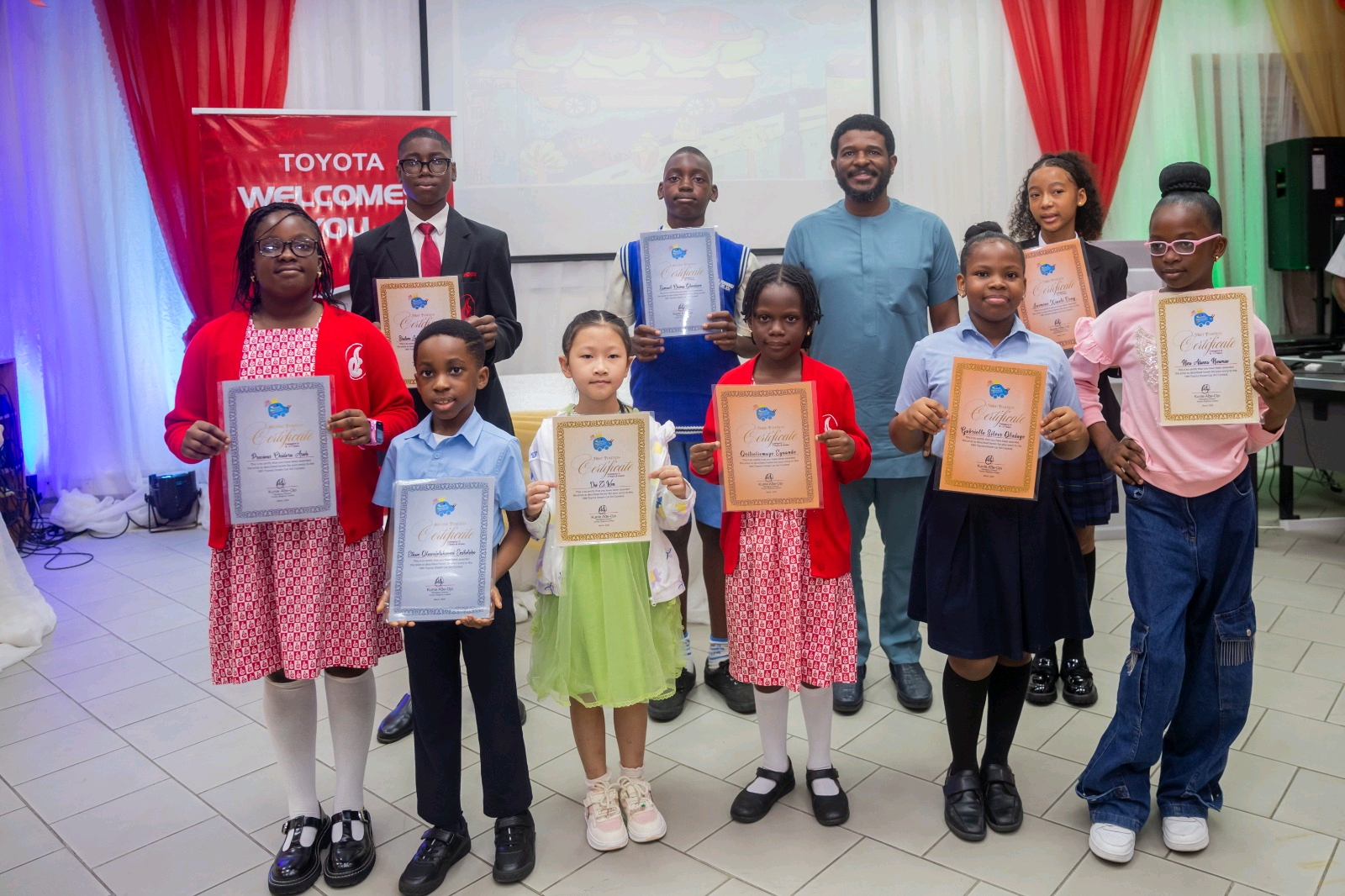
Parents hail Toyota (Nigeria) Limited at 18th Toyota Dream Car Art Contest Award ceremony
Parents whose children recently won prizes at the 18th Toyota Dream Car Art Contest award ceremony have expressed profound gratitude to Toyota (Nigeria) Limited for giving the young stars the platform to show their talents and excel.
The presentation of awards by the TNL to the latest winners of the Toyota Dream Car Art Contest will remain memorable in the minds of the beneficiaries, parents and teachers of the pupils.
The event held specifically on March 8, 2025 at the corporate headquarters of the company in Lekki, Lagos, was indeed a day of celebration and glitz for all.
It was exciting not only for all the winners but their parents, siblings, well-wishers and staff of Toyota (Nigeria) Limited that graced the occasion.
Mr Shoniran, who spoke on behalf of all parents present, he expressed a deep appreciation for what Toyota had done for the children.
He said, “The exposure would further help to boost the confidence of the budding artists.”
He added that TNL had given all winners a strong pedestal to showcase their talent while thanking the company for this life-time opportunity and the valuable gifts presented to them.
Three (3) children emerged national winners from each category, making it nine (9) winners altogether at the national level and were properly celebrated and given awards.
The award was keenly contested in three categories vis: 7 years and under; 8 – 11 years and 12 -15 years.
A total of 680 (Six hundred and eighty) children were recorded to have taken part in the contest at the competition centres in Lagos, Abuja and Port Harcourt.
Entries (drawings) of winners from over 92 countries (including Nigeria) around the world are sent to Japan to compete at the global level.
Managing Director of Toyota (Nigeria) Limited, Mr Kunle Ade-Ojo, in his welcome address, congratulated all winners, saying, “The annual Toyota Dream Car Art Contest is a keenly contested competition by children from all over Nigeria and it is one of the Corporate Social responsibility activities of the company that has won the heart of many children in the nation.
“TNL is happy to organise this annual event as it presents the opportunity for budding artists to express their ideas in living colours.
“It is a medium to help them build their confidence in the expression of arts and to create lasting memories with and for them; sweet memories and a lasting relationship with the brand.”
He commended all winners for earning a place in the keenly contested and coveted competition.
Dai Zi Wen came first in the Age 7 and under category; Ethan Oluwafolahanmi Enilolobo emerged second, while Oritsetsemaye Eguando came third.
Nina Adanna Nwamuo came first in the 8 – 11 years category; Precious Chidera Aroh came second while Gabrielle Silver Oludayo came third.
In the 12 –15 years category, Shalom Jesujuwon Shoniran came first; Samuel Chima Okonkwo came second, while Jasmine Xiaoli Deng came third.
All winners made a detailed presentation of their artwork which typified futuristic and ingenious ideas, geared towards making the world a better place to live in.
All the winners were presented with a high-quality personal computer laptop and loads of corporate gifts. Responding on behalf of all the winners, Nina Nwamuo thanked Toyota (Nigeria) Limited for providing all contestants such a veritable platform to express their God-given talent.
She also thanked their Art teachers and parents for their guidance, support and encouragement.
She expressed gratitude for the laptop gifts and other corporate goodies that the TNL gave them.
Nwamuo prayed that TNL would “grow from strength to strength”.
Some Art teachers that have consistently over the years helped to shape the style, quality of artwork and guided the children in actualizing their ideas on paper were also recognized. One of such Art teachers is Mr. Oserogho Ojeagbega who also tutored Oluwademilade David Odumuboni, the gifted boy artist that won on the global stage at the 16th Toyota Dream Car Art Contest.
Some other art teachers that were similarly recognized were Mrs. Oluwafunmilayo Arabambi Daramola, Mr. Oluwatobi Famuyiwa, Mrs. Edith Odedokun and Mr. Samuel Allen-Taylor. Each of the five teachers went home with a commendation plaque and N250,000 (Two Hundred and Fifty Thousand naira) for their commitment to the contest over the years.
The event also featured a special celebration of the birthday of one of the winners, Samuel Okonkwo, whose birthday it was on the Awards ceremony day, 8th March, 2025.
TNL presented him with a birthday cake which he cut with glee and the support of his happy parents, joined by Mr. Kunle Ade-Ojo, MD, TNL, while the birthday song was sung for him by all attendees.
He said, “Toyota made my birthday extra special for me and I will never forget today as long as I live. Thank you, Toyota Nigeria. You are simply the best.”
The ceremony ended with an elaborate entertainment for all that attended, and everyone went home with a corporate gift.
Business
How to use $23bn forex reserves to stablise exchange rate, by Uwaleke

How to use $23bn forex reserves to stablise exchange rate, by Uwaleke
A financial expert, Prof. Uche Uwaleke has said the accretion of Foreign Exchange Reserves (NRER) at 23.11 billion dollars to Nigeria’s external reserves puts the Central Bank of Nigeria (CBN) in a stronger position to defend the value of the naira.
“The CBN can leverage rising external reserves to intervene in the forex market whenever it becomes necessary to stabilise the exchange rate,” Uwaleke said while arguing that the current size of the NER will positively impact on the value of the Naira.
Uwaleke, a Professor of Capital Market at the Nasarawa State University, Keffi, is also the President of the Capital Market Academics of Nigeria, however, raised concerns that the increase in the nation’s foreign reserves had been largely on account of temporary FX inflows such as Foreign Portfolio Investments (FPIs) and foreign loans.
He said that they represented unsustainable sources of growing external reserves.
“Impatient capital such as FPIs carry a lot of risks and have the potential of destabilising the economy whenever they leave the country.
“Against this backdrop, the government should pay more attention to diversifying the export base of the economy, especially via agriculture and solid minerals.
“The government should also create the enabling environment that attracts sustainable Foreign Direct Investments (FDIs) ,” he said.
READ ALSO:
- Heavy gunfire in FCT, police recover stolen cars, suspects arrested
- Residents of Lagos, Enugu face extreme heat, amid power issues
- 18 killed as flood wreaks havoc in parts of US
The CBN recently revealed that the NFER stood at 23.11 billion dollars at the end of 2024, their highest level in three years.
The apex bank said that the development signalled a major improvement in the country’s external financial position.
It said that the NFER, which adjusts gross reserves to account for near-term liabilities such as currency swaps and forward contracts, stood at 3.99 billion dollars at the end of 2023.
According to the CBN Governor, Yemi Cardoso, the improved position was due to substantial reduction in short-term foreign exchange liabilities, notably swaps and forward obligations.
Cardoso cited measures aimed at boosting forex market confidence and reserves, alongside increased non-oil foreign exchange inflows.
“This improvement in our net reserves is not accidental; it is the outcome of deliberate policy choices aimed at rebuilding confidence, reducing vulnerabilities, and laying the foundation for long-term stability.
“We remain focused on sustaining this progress through transparency, discipline, and market-driven reforms,” Cardoso said.
He said that Gross external reserves also climbed to 40.19 billion dollars at the end of 2024, up from 33.22 billion dollars the previous year.
“Reserves declined in the first quarter of 2025 due to seasonal factors and foreign debt interest payments, the CBN anticipates a steady uptick in reserves throughout the second quarter,” Cardoso said.
How to use $23bn forex reserves to stablise exchange rate, by Uwaleke
(NAN)
-
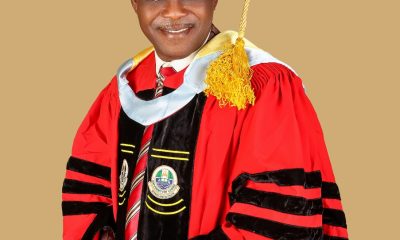
 Education2 days ago
Education2 days agoErudite mass comm lecturer Oscar Odiboh becomes full professor at Delta State University
-

 Entertainment3 days ago
Entertainment3 days agoA colleague raped me, Actress Lolo 1 alleges
-
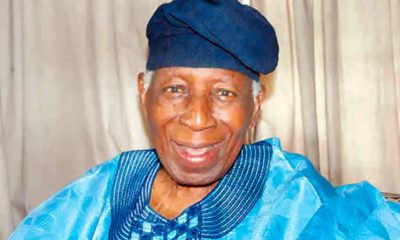
 metro2 days ago
metro2 days agoBreaking: Former Oyo governor Olunloyo dies at 89
-

 International3 days ago
International3 days agoTrump: VOA goes off air in Nigeria, Ghana, others
-

 metro2 days ago
metro2 days agoNurse leaves US, seeks new life in Nigeria, says everything not money
-

 Politics2 days ago
Politics2 days agoBREAKING: Nickolas Ukachukwu defeats Ozigbo to win Anambra APC gov ticket
-

 Health3 days ago
Health3 days agoPoisonous fluorides in toothpaste: Pharmacists counter televangelist’s claims
-
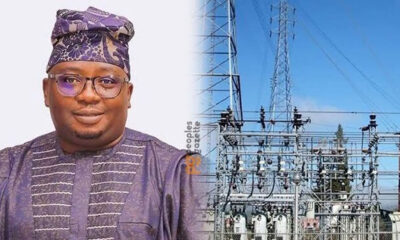
 metro1 day ago
metro1 day agoNigeria will receive first batch of 3.2 million meters in April – Adelabu

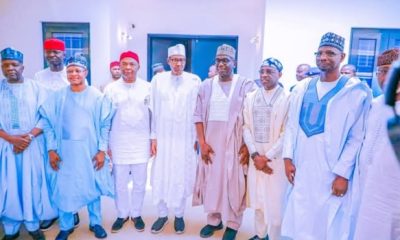












You must be logged in to post a comment Login